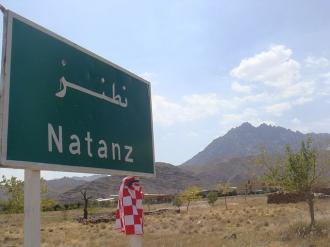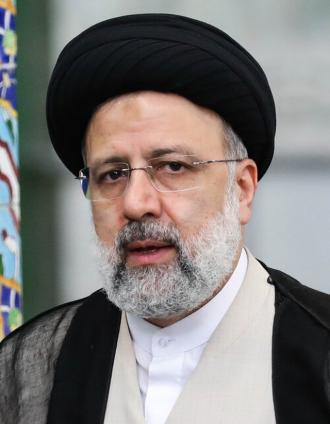1) Yaakov’s Fear and Distress
“Vayira Yaakov me’od vayeitzer lo (Bereishis 32:8).” Yaakov was very fearful, and distressed. Rashi brings down “vayira”, Yaakov was afraid that he might get killed and “vayeitzar lo” he was afraid lest he would kill someone else (“shemah yeihareig achairim”).
Yaakov’s True Fear
Gra asks: What’s Yaakov’s concern? He was going to have to kill Eisav or his four hundred men who were pursuing him to kill him? What is the issue here, it is self-defence?
Gra says that’s not what Rashi is saying. This is one of those times where Gra translates something in a very fascinating way, showing the depth of Rashi. Yaakov knew that Rebbe Meir was going to be a descendent of Eisav because he was ben geirim, from Edom, and Yaakov did not want to have to kill him and thus stop Rebbi Meir from coming out. Rebbe Meir’s nickname at the end of Meseches Horiyos, was “Acheirim, Others”. Rebbe Meir was punished for an action of his that sometimes when he is quoted in the Gemara he is called by, “Acheirim omrim”. Thus, Gra reads, “vayitzeir lo shema yeihareig acheirim” as, “Yaakov was very distress lest he may kill he might kill acheirim, the person.”
Need for Purification
This vort has a couple of very fascinating addendums. The first thing is that Rav Meir was a talmid of Acheir, Elisha ben Avuya. Elisha ben Avuya went off the derech (see Chagigah 15a-b). Rav Meir got his rebbe out of gehenim at the end of his life. Nonetheless, Elisha ben Avuya lived a very evil life and according to the Yerushalmi he actually murdered talmidei chachamim, promising Jewish scholars. He really did horrible things.
They asked Rav Meir: How could you learn from him? He replied: I found a pomegranate and I eat the flesh, the fruit, that’s healthy, which is the Torah that he teaches, but I throw out the klipa, the peel, the negative part. What’s very fascinating about him is that some of the mefarshim explain a very deep thing Rav Meir, because some of the stuff that he got from Elisha ben Avuya had to be filtered. Now, Elishav ben Avuya is called “Acheir”, the other one, in order to show that he’s excluded from the gemara due to his actions. He was on the path to greatness but he got lost. Tosfos brings down one opinion, although Tosfos himself rejects it, other rishonim do stick with it, stating that whenever Rabbi Meir was telling over the Torah he learned from Acher, it is in those cases that he is referred to as “Acheirim”.
Some of the Torah the Rebbe Meir received was stemming from this negative source. Therefore, there had to be a purification of Rebbi Meir himself, and that also explains the fact that he came from Eisav, so there had to be a purification of him, and his Torah had to be purified. This is just a starting idea that needs to be honed and developed.
Future Descendents
Another fascinating idea here is the following question that emerges. If you kill someone and he was supposed to be the father and grandfather of some people what does that even mean? We know that by Korach, for example, it says that he knew that he was going to have Shmuel emanate from him, and Shmuel was compared to Moshe and Aharon, and, therefore, he took gedula for himself. But, Rashi says, “Eino hitaso”. He made a mistake with his prophecy. It was really going to come from his descendents and so it really didn’t have anything to do with him. When people see things in the future it’s not necessarily accurate. In this case, perhaps Eisav had already fathered children and they would be the father of Rebbe Meir. It could be that Yaakov recognized that Eisav’s power of producing Rav Meir was not yet brought out.
Legacy Formation
Even though Chazal say that you Yishmael did teshuva at the end of his life which was a big comfort to Avraham Aveinu, we don’t find that his children acted very well. “Yado bakol v’yad kol bo” was their legacy and behaviors, just like their father. They still live a bad life, and that’s because, it’s true that Yishmael did teshuva, but his entire life was still lived incorrectly. There were still negative things that he taught and instilled in his children. He might have repented in the end, but they didn’t come back with him, and so, therefore, on the one hand, yes teshuva could erase aveiros and turn them into shogigim or maybe even mitzvos, but, nonetheless, it can’t take away a legacy of vanity, and so it couldn’t pull his children back.
We must be careful with things that we do in our lives that we are always teaching our children the right thing because even if we repent, which is a great thing to do, but, nonetheless, it doesn’t take away the legacy that we build each day of our lives.
2) Yaakov’s Sleep
“Vayalan sham ba’layla ha’hu” (Bereishis 32:13). Yaakov Aveinu slept. Chazal tell us that he only slept then. He never slept before then. He was learning in yeshiva of Sheim v’Eiver for fourteen years. And he never slept after that Chazal darshen either because he was so busy learning Torah and taking care of his family.
Be’er Heiteiv’s Sleep Schedule
There’s a very famous Be’er Heiteiv in Shulchan Aruch (1:6) He says that some people say that the z’man for sleep recomended is 8 hours. How do we know? Because a pasuk in Iyov (3:13) says, “Yashanti az, yanuach li.” I slept “az (numerical value: 8)”, then it was good for me. So, sleep is very good. But, “az”, aleph zayin is b’gematria one plus seven which is eight. So, you need eight hours of sleep and most scientists agree with this as well.
Gra’s Interpretation
Gra disagrees and says that one needs four hours of sleep a day. Gra himself, according to his sons testimony never slept more than a half hour at a time, and only slept two hours. But, either way, maybe at some point in his life he slept four.
Gra explains: What’s the p’shat? How do I read this remeze in the pasuk. He darshans a different word in the pasuk. He says like this: Over a two day (48 hour) period one needs eight hours. “Yashanti az.” In a two day period I slept eight hours. Then, “yanuach li”, then it’s good for me. What is good for me? “Li.” Lamed, yud which is 40. Those are forty hours that remain to be productive off of the 8 hours total of sleep.
Individual Care
Everyone has different sleep needs. Some people are going to listen to this and say, “I wish I get four hours of sleep a day.” And, some people are going to say, “No way, I can’t function on it.” Don’t push yourself. It’s not worth it. Shulchan Aruch says, “Kol ma’asecha yihiyu l’Sheim Shamayim.” A person should make sure that they sleep whatever they can. Many great tzaddikim and gedolim have slept properly. Rav Avigdor Miller is one of them who very much encouraged sleep. Many other gedolim have encouraged sleep as well. Rav Scheinberg and other people have been quoted and I heard with my own ears the importance of sleep from many gedolei Yisrael.
Yes, it’s true that as people get older they don’t have to sleep as much. So, when someone visited the Steipler in 1984, the year before he died, and he said: Wow, he doesn’t sleep. The Steipler said: I’m an old man. I can’t sleep, so I learn. I do something productive. There is a lot of truth to that. As people get older they have more insomnia issues and they also need less sleep. So, either way, maybe they take naps during the day also. We’re forgetting about that.
We try to sleep l’Sheim Shamayim and we have in mind restoring health to our body so we can learn better. That’s why we make a bracha of “hamapil”; we turn our sleep into a mitzvah. Not just when we sleep in a succah. Every night you go to sleep it’s a mitzvah. You say: Hashem please recharge me and take care of me. That’s what sleep is for. It’s so that we could serve Hashem. And, process our emotions and feelings and so many different things that happen during sleep, a good night’s sleep it helps you succeed well.
I’ll leave you off with what I always tell people which is: If you oversleep an hour, you lost an hour of productivity. If you undersleep a minute, you lost an entire day.
If you undersleep a minute that could throw off your entire day. Your entire emotional wellbeing. Your entire work of your middos.
---
Rabbi Yosef Tropper is a rabbi and psychotherapist. Subscribe at ParshaThemes.com















